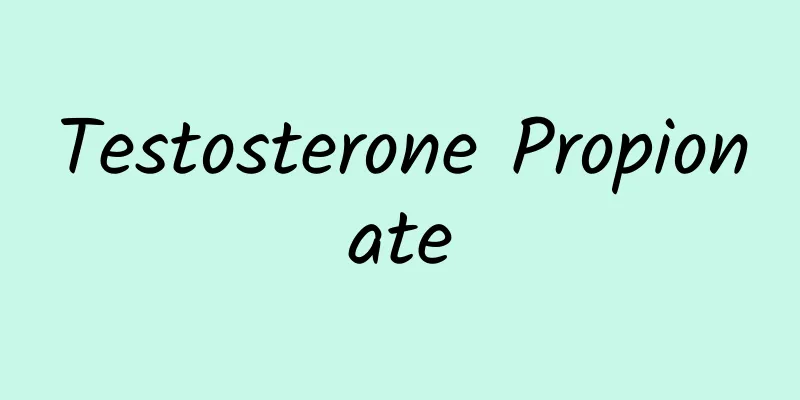Testosterone Propionate

|
Testosterone propionate is a common medicine in daily life. It is mainly an androgen drug. The main usage is injection. In daily life, it is mainly used for testosterone and gynecological diseases, such as menorrhagia, uterine fibroids and some senile osteoporosis. It can ensure that some sexual dysfunctions of male friends are reduced under certain conditions. It also promotes the secretion of erythropoietin in your body. Progesterone has a direct stimulating effect, and can be used as a substitute for estrogen in the treatment of some primary sexual dysfunctions. At the same time, breast hypoplasia can also be treated in time. Its injection can also cause side effects: virilization, virilization of women, jaundice and dizziness. Intramuscular injection: usually 25 mg once, 2 to 3 times a week. Androgen deficiency: intramuscular injection of 10-50 mg once, 2-3 times a week. Menorrhagia or uterine fibroids: intramuscular injection of 25-50 mg, twice a week. Functional uterine bleeding, used in combination with progesterone: 25-50 mg each time, injected intramuscularly, once every other day, for 3-4 times in total. Aplastic anemia: 100 mg intramuscularly once daily or every other day for more than 6 months. Senile osteoporosis: 25 mg intramuscularly each time, 2 to 3 times a week, for 3 to 6 months. Female breast cancer and breast cancer bone metastasis: 50-100 mg intramuscularly, once every other day, for 2-3 months. Large doses can cause virilization in women, edema, liver damage, jaundice, dizziness, etc. If an allergic reaction occurs, the medication should be discontinued immediately. It is not recommended for patients with liver or kidney dysfunction, prostate cancer and pregnant women. If crystals are precipitated from the injection solution, they can be heated and dissolved before injection. It is contraindicated for use in pregnant and lactating women, and in patients with prostate cancer. Liver function should be checked regularly during medication, and if liver damage occurs, the dose should be reduced or discontinued. The dosage should be reduced for prepubertal children, and bone age should be measured every 6 months. Injection: 10 mg (1 ml), 25 mg (1 ml), 50 mg (1 ml) per vial. Function: The effect is the same as testosterone and methyltestosterone, but the effect of intramuscular injection is longer-lasting, and it can be injected once every 2 to 3 days. It is clinically applicable to atestis, cryptorchidism, male hypogonadism; gynecological diseases such as menorrhagia, uterine fibroids; senile osteoporosis and aplastic anemia, etc. It works by stimulating the kidneys to secrete erythropoietin, or by having a direct stimulating effect on the bone marrow. Androgen replacement therapy for primary hypotesticular function; hypoplastic sex organs. Large doses can cause virilization in women, edema, liver damage, jaundice, dizziness, etc. If an allergic reaction occurs, the medication should be discontinued immediately. It is not recommended for patients with liver or kidney dysfunction, prostate cancer and pregnant women. If crystals are precipitated from the injection solution, they can be heated and dissolved before injection. Delayed puberty and dwarfism; various chronic wasting diseases, etc. The above is the introduction of testosterone propionate. In life, we must pay attention to some adverse reactions in terms of dosage of medication, which will cause some lesions of the kidney organs and allergic reactions. It can replace other drugs for treatment. It has a good effect on the treatment of some gynecological and men's diseases, excessive menstrual flow and testicular dysfunction, so the above-mentioned diseases can also be treated with medication according to the prescription issued by the doctor. |
<<: How to cure allergic rhinitis
>>: Precautions for taking sugar pills
Recommend
Drugs to prevent femoral head necrosis
The older you get, the more serious the calcium d...
What is the effect of potassium permanganate washing the vulva?
Potassium permanganate is a small black-purple so...
Early symptoms of ADHD in children
There are many symptoms of ADHD in children. For ...
Can femoral head necrosis be inherited?
In the early stages of bone necrosis, there may b...
What is the disease of women's urine smelling bad? The following smells of urine should not be ignored
The urine of a healthy person has a very slight o...
What causes bleeding when taking insulin?
When injecting insulin, if mistakes or bleeding o...
What are the benefits of drinking Chuanbei honey water?
Honey is a very sweet food, and it is a golden li...
There is a hard lump on the thigh root
If you feel hard lumps growing on the roots of yo...
Symptoms of Myelodysplastic Syndrome
When it comes to myelodysplastic syndrome, many p...
Does kidney-tonifying Chinese medicine hurt the stomach?
Many of our friends actually suffer from kidney d...
How to make the glans penis less sensitive
The male glans is a very important part of the ma...
Effects of Xiao Chaihu Decoction
Medicine is very common. Different medicines have...
Baby shrugs and shrinks his neck
Although the country has now allowed for a second...
What are the symptoms of heat toxicity? How is heat toxicity defined?
Heat poison, also known as fire poison and warm p...
Are miliary shadows on the lungs serious?
If miliary shadows are found on the lungs during ...









